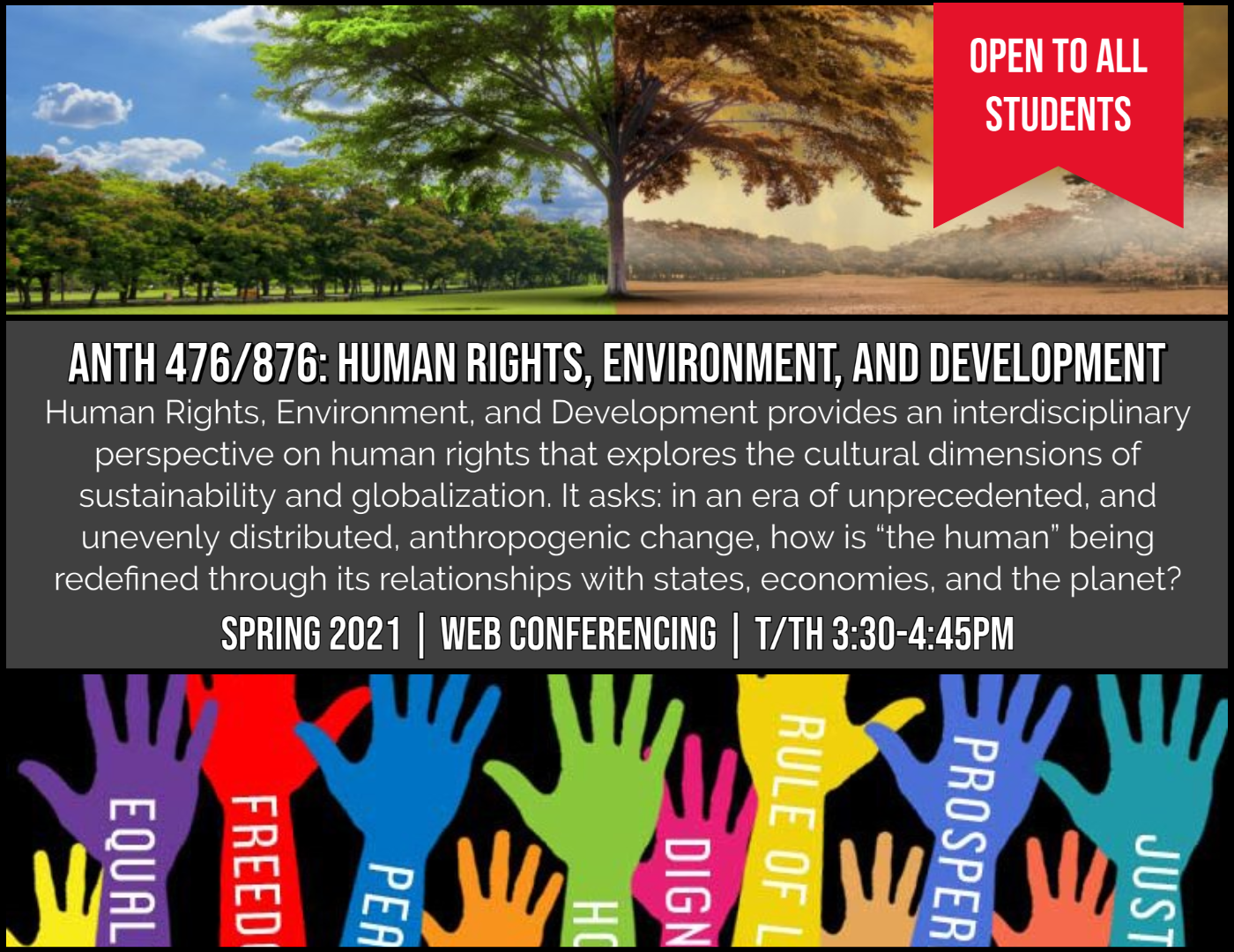
Human Rights, Environment, and Development provides an interdisciplinary perspective on human rights that explores the cultural dimensions of sustainability and globalization. It asks: in an era of unprecedented, and unevenly distributed, anthropogenic change, how is “the human” being redefined through its relationships with states, economies, and the planet? Through readings, discussions, and presentations, students consider the implications of human and environmental rights as they relate to: climate change; migration; gender; minority cultures; social and economic freedom; food and water; critical heritage and testimony; traditional knowledge and intellectual property; animals/the nonhuman; the narrative conventions of rights; and emerging approaches in anthropology and the environmental humanities. Major assignments include a research paper, and an analysis of a public organization that focuses on these issues.
About the Professor:
Parker Krieg teaches in the Global Studies program at the University of Nebraska Lincoln’s School of Global Integrative Studies. He received his PhD in English from the University of Oregon, and MA in Literary and Cultural Studies from Carnegie Mellon. He previously held a postdoctoral fellowship in Environmental Humanities at the University of Helsinki, affiliated with the Faculty of Arts and the Helsinki Institute of Sustainability Science. His research and teaching focuses on post-Fordist modernization and environment in contemporary literature and culture, especially as it relates to cultural memory and environmental justice. He is co-editor of Situating Sustainability: A Handbook of Contexts and Concepts (forthcoming on Helsinki University Press), and co-edits the new series, Global Challenges in the Environmental Humanities (Bloomsbury).